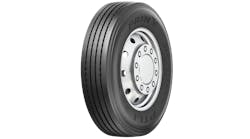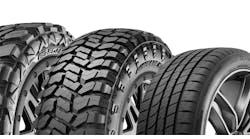The spread of the coronavirus has created a tremendous amount of uncertainty – not just within the tire industry, but across markets worldwide.
Just last week, the United States stock market suffered a loss of more than 3,500 points, or 12%, the worst weekly drop since the 2008 financial crisis.
How will the coronavirus impact tire shipments and supply?
MTD recently talked with several tire industry executives – from both the manufacturer and distribution sides – about how the coronavirus is affecting their operations. (All were promised complete anonymity.)
To date, the big concern has been about Chinese-produced tires. A number of manufacturers with plants in China extended their New Year’s shut down to try to combat the spread of the virus. Most plants are back up and running, but there are conflicting reports regarding the level of production at this time.
To put things in perspective, the U.S. imported 3.4 million Chinese-produced consumer tires in 2019. (Total replacement shipments of passenger and light truck tires in the U.S. were just under 255 million units. Chinese-produced products accounted for just 1.3% of this total.) However, on the truck tire side of the business, there were 3.2 million Chinese-produced tires shipped out of a total 18.9 million units, or 17%.
MTD learned that China is experiencing issues moving raw materials from ports to factories, as well as moving finished products back to ports. In recent days, transportation has been allowed to move more freely, but checkpoints and other precautionary measures remain in place in an attempt to thwart the spread of the virus.
Ports are experiencing similar problems. An executive told MTD that ships carrying raw materials are circling harbors, waiting to be unloaded. Meanwhile, containers are not being loaded and shipped at previous levels.
Across the Pacific, U.S. ports have placed quarantines on shipments from countries impacted by the virus. The list of flagged countries is constantly evolving.
A representative from a large tire distributor said he has been told by one of his China-based suppliers that container shipments have dropped to well under 40% of normal levels. This same distributor said his other suppliers who have manufacturing in China, Thailand, Taiwan and Vietnam are telling him they are not experiencing delays.
South Korea is another country which has been badly hit by the coronavirus. However, so far, U.S.-based dealers of South Korean-made tires are saying that they have not heard of any shortages or slowdowns in shipments from that country. This has been corroborated by other distributors and some larger tire retailers.
But dealers and distributors are watching the situation very closely. So far, the pipeline for South Korean-made products remains full.
On the tire component side, some tire companies that source raw materials and other items from China told MTD they are currently unsure whether they can depend on these materials being shipped on schedule and are looking for alternatives. This, they said, could lead to extra costs in the production of tires and an increased possibility of further tire price increases.
“Every industry will be impacted by the coronavirus,” one tire industry executive told MTD. “It is impossible for this not to happen. When every government in the world is taking steps to try to curtail the outbreak, there will be ramifications. Our industry will feel it just like others. So you prepare for the worst and hope for the best.”
MTD also asked Jeff Morgan, executive director of Dealer Strategic Planning (DSP 20 Group), about two or three things that North American tire dealers should do to protect their company.
He said dealers must take a “safety first” mentality. Employees must be educated and understand that they must stay home when they are sick, particularly when experiencing fever-like symptoms.
“Dealers must have a contingency plan in place for any situation, just as they would for severe weather,” said Morgan. “Plan ahead to determine how you would operate if numerous employees are out.”
Morgan recommends that owners take the time to “think about how to protect your business, other employees and your customers. Plan in advance and don’t shoot from the hip.”



